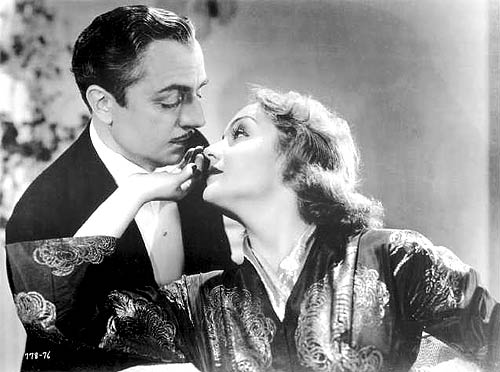“You mustn’t come between Irene and Godfrey. He’s the first thing she’s shown any affection for since her pomeranian died last summer.”
Of course the thing that Mrs. Angelica Bullock (Alice Brady) is referring to is Godfrey (William Powell), not a pomeranian or another animal but the Bullock family butler. You know, a person.
The Bullock family in “My Man Godfrey” is so hilariously oblivious to how condescending, offensive and even racist they are at all times that the movie is not just some screwball caricature of the upper class or of a select group of needy people but a ridiculously razor sharp, tart and biting comedy about the class divide and the compulsively, unhealthy attachments that people can develop and force them to act out.
The story is simple: A wealthy socialite named Cornelia (Gail Patrick) arrives at the city dump and offers a homeless bum five dollars to come back with her to a hotel so she can claim a prize in a scavenger hunt. All she needs is “a forgotten man,” a choice of words that she finds tame and completely reasonable but is so degrading in just about any context that he bullies her until she falls into a pile of ashes and storms away. Her sister Irene (Carole Lombard) apologizes but is also participating in the scavenger hunt, and he returns with her out of politeness and curiosity to the impending circus of the upper class. When he becomes insulted and nearly leaves, Irene offers him a job as their new butler. This is Godfrey, who has no clue what to expect of this hysterical family, but also a man who is not nearly as one-dimensional as the Bullocks first imagine.
They see him speaking philosophically and critically of their lifestyle, unimpressed by their wealth and in possession of his own character and charm. He has a big effect on Irene, a girl so bubbly, wide-eyed and full of quirky pep that in a modern remake she could be played by Zooey Deschanel, and Cornelia, who is spoiled beyond belief and is a man-eater who can always get her way. Irene believes herself in love with Godfrey, and she’s devastated by her crush, her impulses and her naivete to how little romantic chemistry they actually have. She turns into quite the drama queen when he first rejects her advances. “What is food?” she asks rhetorically as though in a Shakespearean tragedy. As for Cornelia, her compulsion is to ruin Godfrey’s life, and she’s the first to discover he’s not who he appears to be.
The Bullocks are whining, loud, air-headed and exaggerated human beings with little meaningful to say but capable of attracting so much noise and attention. The word games they play without even realizing their faux-pas are delicious. They are animals in fine clothing, as made very obvious when Angelica’s protege Carlo performs an insane routine as a gorilla.
But what makes the film so smart and so funny is how all this material is handled. We learn that the family got horribly drunk at the scavenger hunt and proceeded to tear up the town, but all of that happens behind closed doors. Irene rode a horse up the main driveway, but we only hear the horse from the opposite room, and the movie is that much dryer and sharper for it. Anyone familiar with William Powell in The Thin Man movies knows he’s the king of detached sarcasm, and here his tone is put to the test by this family of harpes, but also by the family maid, Molly (Jean Dixon). “Can I be frank?/Is that your name?/No, I’m Godfrey./Be Frank.”
“My Man Godfrey” was directed in 1936 by Gregory La Cava, a silent film director who only did so many titles in the Golden Age of Hollywood, this being by far his most well known. The film was nominated for six Oscars. Powell, who was nominated for Best Actor, also starred in that year’s winner, “The Great Ziegfield.” He had already starred in “The Thin Man” and was a major star. Carole Lombard too was a peach and a formidable star of the ’30s, but she died in 1942 after her last film that year, “To Be or Not To Be.”
This is a hilarious film. Its ending is somehow perfect despite all odds. His act of philanthropy comes as such a surprise and is so well revealed that it feels all the more endearing. It’s a film about compulsive attachments and silly people, but in the end it shows how these attachments can be used to better one another. Like a butler you’d find in a city dump, it’s a rare gem.
